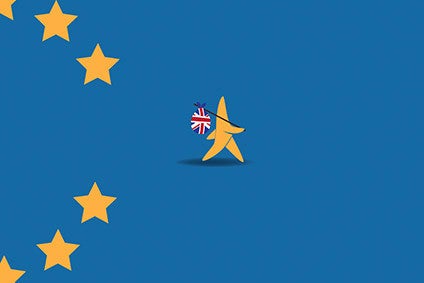“Getting Brexit done is now the irrefutable, irresistible, unarguable decision of the British people.”
So spoke UK Prime Minister Boris Johnson this morning (13 December) in the wake of leading The Conservative Party to victory in the country’s third General Election in four years. “We will get Brexit done on time by the 31st of January, no ifs, no buts, no maybes.”
The Conservative Party’s 80-strong majority means Johnson is all but certain to secure parliamentary approval for the withdrawal deal he struck with the EU in October in order to leave the bloc by the end of January.
During the election campaign, Johnson also insisted he would be able to strike a post-Brexit trade deal with the EU by the end of 2020. Brussels has said it wants to start trade talks with the UK by March, meaning any agreement would have ten months to be struck and then approved by parliaments on both sides of the English Channel.
However, as we all know, trade deals with the EU usually take years and Brussels has expressed scepticism about whether an agreement with the UK could be reached by the time the transition period for the country’s departure elapses at the end of 2020.
There are a number of areas where the UK and the EU, at present, disagree on how trade could take shape, including on fisheries and rules of origin.

US Tariffs are shifting - will you react or anticipate?
Don’t let policy changes catch you off guard. Stay proactive with real-time data and expert analysis.
By GlobalDataThe Food and Drink Federation, the association representing food manufacturers operating in the UK, today “congratulated” Johnson for his election victory but expressed concerns about the kind of trade deal with the EU that could be done by the Prime Minister’s end-of-2020 deadline – and rules of origin is at the forefront of its concerns.
Shares in UK food retailers rose today in the wake of the election result, with some in analyst circles speculating there could be a release (just in time for Christmas) in consumer spending said to have been pent-up ahead of the poll. There is no doubt the business community will be satisfied the General Election yielded a decisive result.
But, in so many ways, for all the decisiveness of last night’s result in terms of a Conservative victory, a fog of uncertainty still hangs over business. It is unlikely the kind of “comprehensive” trade deal demanded by the FDF can be struck in under a year. Yet, in its manifesto, the Conservative Party said it would not extend the transition period.
Taken at face value, that could mean that, by the end of 2020, without a trade deal with the EU, the UK could leave the bloc on World Trade Organization terms – very much not the kind of agreement the FDF and its members have in mind.
But could Johnson’s very solid majority – meaning, some have suggested, he is no longer beholden to the arch Brexiteers in the Conservative Party – give the Prime Minister more room for manoeuvre and perhaps the scope to extend the transition if need be?
At this point, it is extremely hard to tell. Either way, negotiating a trade deal with the EU will be challenging and coming up with an agreement that ticks all the boxes of food manufacturers operating in the UK very unlikely.





